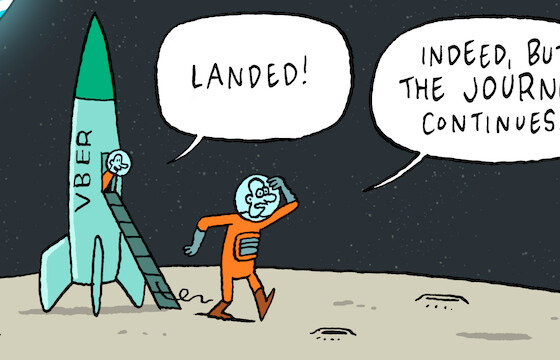What?
Before diving into the individual restrictions of competition that typically appear in vertical agreements, it is useful to first focus on the main types of distribution systems. Such types include exclusive distribution, non-exclusive or free distribution, selective distribution, franchising and agency. Suppliers can opt for a single system that covers the entire EEA, but may also combine distribution systems. This is for instance the case where a supplier applies non-exclusive distribution in certain parts of the EEA and selective distribution in other parts.
An alternative (with important competition law implications) is to organize the distribution of products or services by means of vertical integration. This implies that a supplier distributes either directly by itself or through group entities which are under the same control.
Such a vertical integration scenario does not fall within the scope of Article 101 TFEU (this is the Treaty provision dealing with agreements that are restrictive of competition). The reason is simple. The application of Article 101 TFEU requires the involvement of at least two independent undertakings. Legal entities that are part of the same group of companies are considered a single undertaking. Hence, in a case of vertical integration, there is only one undertaking involved and the prohibition of Article 101 TFEU is simply not applicable. This means that there is no need to consider a block exemption in that context. Vertical integration is therefore a valid strategy to avoid, or in any event reduce, competition law problems.
Now?
Commission Regulation 330/2010 is the block exemption regulation currently in force. It is often referred to as the VBER, and it is applicable to any of the distribution systems referred to above. Although the VBER does not explicitly refer to franchising, this type of distribution system is also covered.
Hence, in order to benefit from the safe harbour of the block exemption, there is no need to prefer one distribution system over another. The devil will rather be in the details. The restrictions that can be imposed under the block exemption will differ depending on the chosen distribution system. A pragmatic way forward in this respect is to make a distinction between selective distribution agreements and non-selective distribution agreements. The individual restrictions that are benefiting from the block exemption will indeed differ depending on whether the distribution agreement falls in one category or the other.
The definition of a non-selective distribution agreement is rather straightforward. It is any distribution agreement that does not meet the definition stated in the VBER of a “selective distribution system”. A selective distribution system is defined as any system “where the supplier undertakes to sell the contract goods or services, either directly or indirectly, only to distributors selected on the basis of specified criteria and where these distributors undertake not to sell such goods or services to unauthorized distributors within the territory reserved by the supplier to operate that system”. In future “DLC countdown” newsletters, we will come back to this definition and consider it in greater detail.
The future as of 1 June 2022?
The current proposals of the Commission for the future block exemption regime do not alter the coverage of the wide range of distribution systems referred to above. The basic distinction between selective and non-selective distribution agreements remains applicable. Furthermore, the definition of a “selective distribution system” is left untouched. We expect this approach to remain in place when the amended proposals are issued in 2022.
Against this background, it is somewhat surprising that the text of the current draft VBER and the current draft Vertical Guidelines explicitly refer to a third category of distribution agreements, notably those that are neither exclusive, nor selective (so-called “free distribution”). However, the individual restrictions that are blacklisted for this third category are identical to those that are blacklisted for exclusive distribution agreements. Hence, the reality is that both exclusive and free distribution are part of the same category of non-selective agreements under which exactly the same individual restrictions must be avoided (the so-called “black list” or “list of hardcore restrictions”). Both legally and practically speaking, whilst it may seem otherwise, nothing changes compared to the existing regime.
In practice?
Considering the current Commission proposals, there will be no need to consider changing the distribution systems that are currently put in place by suppliers. The coverage of the block exemption remains as broad as is the case under the VBER. The fundamental choice to be made remains that between a selective system and a non-selective system.
Assessment?
As the block exemption remains the single most important EU competition law instrument to ensure the validity of distribution agreements, the continued broad coverage envisaged in the current Commission proposals must be welcomed. It would indeed be unfortunate, as was the case during the first decades of EU competition law, if parties were to select a particular distribution system in order to benefit from a block exemption (which scope was much narrower at the time), rather than relying on economic and business considerations when making their selection.
We would, however, recommend that in the amended proposals the addition of a separate category of free distribution in the hardcore list of Article 4 of the draft VBER is removed. In order to make the future block exemption as user-friendly as possible, it would be helpful to inject explicitly a simple distinction between selective and non-selective distribution agreements. This recommendation does not alter in any respect the substance of the draft VBER, but makes matters clearer for businesses and users of this legal instrument.
Want to know more? Stay tuned...
Counting down towards 1 June 2022 we aim to provide you with regular updates and the necessary legal knowhow in order to fully prepare your business for the future. Please also check out the Distribution Law Center platform and our LinkedIn page for much more information on the laws governing vertical agreements, covering both competition and commercial law. 27 specialized teams from all over the EEA are working hard to turn the platform into your favourite source of guidance and information.
A translation of this Countdown newsletter is available in the following languages: Czech, Croatian, Portuguese, Romanian, Slovak, Spanish, Swedish
Read the available DLC Countdown newsletters on the changes to be expected here.





Sign in to post comments